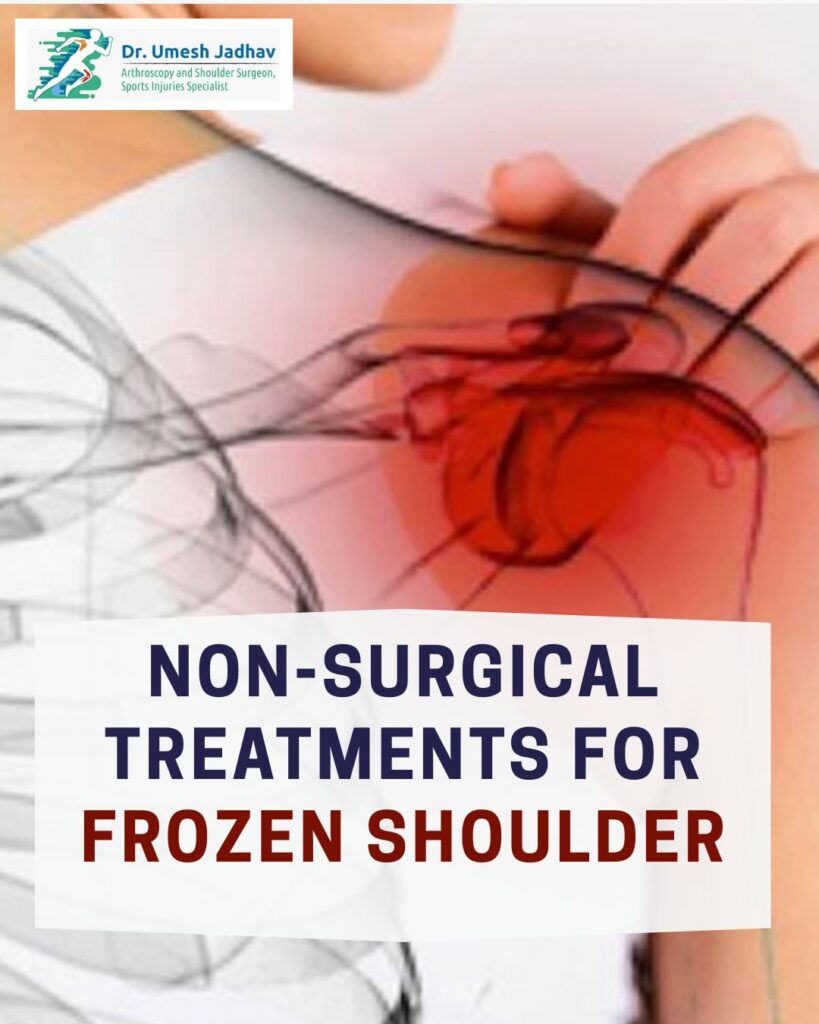Frozen shoulder, also known as adhesive capsulitis, is a painful condition that limits the mobility of your shoulder joint. Many people experience stiffness, discomfort, and difficulty performing daily activities. The good news is that non-surgical treatments for frozen shoulder can often provide significant relief and restore function without the need for surgery.
If you’re struggling with shoulder pain or stiffness, consulting an experienced orthopedic doctor and surgeon in Nigdi, PCMC, Dr. Umesh Jadhav, can help. He can evaluate your condition, recommend effective non-surgical treatments, and guide you through exercises and therapies to regain mobility and reduce pain.
Common Causes of Frozen Shoulder
Frozen shoulder can occur due to:
-
Injury or trauma to the shoulder
-
Prolonged immobility (after surgery or fracture)
-
Diabetes and other metabolic conditions
-
Inflammatory conditions affecting the shoulder
Early recognition and proper treatment are key to preventing long-term stiffness.
Non-Surgical Treatments for Frozen Shoulder
-
Physical Therapy & Exercises
-
Gentle stretching and range-of-motion exercises can improve flexibility.
-
A structured physical therapy program helps reduce pain and regain movement.
-
Techniques may include pendulum exercises, wall climbs, and passive stretching.
-
-
Pain Management & Medications
-
Over-the-counter pain relievers like NSAIDs (ibuprofen, naproxen) can help reduce pain and inflammation.
-
Heat or cold therapy can also soothe shoulder discomfort.
-
-
Corticosteroid Injections
-
In some cases, cortisone injections are administered directly into the shoulder joint to reduce inflammation and pain.
-
This treatment is especially helpful during the painful “freezing” stage.
-
-
Hydrodilatation (Joint Distension Therapy)
-
A minimally invasive procedure where fluid is injected into the joint capsule to stretch it.
-
This helps improve range of motion and can complement physical therapy.
-
-
Lifestyle Adjustments
-
Avoid prolonged inactivity of the shoulder.
-
Gentle daily exercises and posture correction can prevent worsening stiffness.
-
FAQs About Non-Surgical Treatment for Frozen Shoulder
Q1: How long does frozen shoulder take to heal without surgery?
A1: Recovery varies by stage, but most patients see improvement within 6 to 12 months with consistent non-surgical care.
Q2: Can frozen shoulder come back after treatment?
A2: Recurrence is rare if you maintain regular shoulder exercises and avoid prolonged immobility.
Q3: When should I consider surgery for frozen shoulder?
A3: Surgery is usually considered only if non-surgical treatments fail after 6–12 months and the shoulder remains severely stiff.
Q4: Are steroid injections safe for everyone?
A4: They are generally safe but should be used cautiously in patients with diabetes or infections. Always consult your orthopedic doctor.
Conclusion
Non-surgical treatments for frozen shoulder are highly effective in reducing pain and improving shoulder movement. Early intervention is key to faster recovery. For personalized care and expert guidance, consult Dr. Umesh Jadhav, the best orthopedic doctor and surgeon in Nigdi, PCMC, who can create a treatment plan tailored to your needs and help you get back to a pain-free life.
Take action early — your shoulder health matters!

